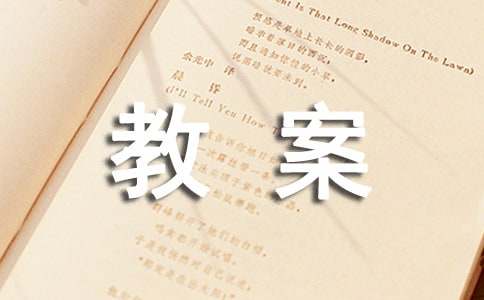- 相关推荐
虚拟语气教案
更多精彩;英语教师网英语教师网论坛课间团购网虚拟语气

一、语气的种类:英语句子中谓语动词的语气有四种:
1.直陈语气(The Indicative Mood)直陈语气用于直截了当地陈述事实、描述状态:
e.g.He has published quite anumber of essays this year.他今年已发表了好几篇论文。
2.祈使语气(The Imperative Mood)祈使语气用于提出请求、命令、建议或是劝告等:
e.g.Wait outside until you are asked.请在外面等候,请你进再进去。
Let's just take abreak,shall we?我们休息一会儿,好吗?
3.疑问语气(the interrogative mood):用来提出问题
e.g.Where are from?
4.虚拟语气(The Subjunctive Mood)虚拟语气用于表示主观愿望和假设的虚拟情况。虚拟语气不太顾及事实的存在,它表现出说话人的主观因素比较多。所以说话人所讲的内容往往是与事实相反的;或是其实现的可能性微乎其微,甚至于没有实现的可能性。当然,有时为了使说话的语气客气、缓和、委婉,也使用虚拟语气。
e.g.I wish you were more careful.但愿你更细心一些。
If Ihad more money,I would buy abigger apartment.
我要是有再多一点钱,我就买一套更大一些房子。
Would you mind shutting the door?劳驾您把门关上。
二、虚拟语气的种类:虚拟语气用来表示说话人的主观愿望或假想,所说的是一个条件,不一定是事实,或与事实相反。虚拟语气在条件句中应用比较多;条件句可分为两类,一类为真实条件句,一类为非真实条件句。非真实条件句表示的是假设的或实际可能性不大的情况,故采用虚拟语气。
三、真实性条件句
真实条件句用于陈述语气,假设的情况有可能发生,各种结构如下:
条件从句主句
一般现在时shall/will+动词原形
祈使句情态动词一般现在时
e.g.If he comes,he will bring his violin.如果他来,会带小提琴来的。
典型例题:The volleyball match will be put off if it_.
A.will rain B.rains C.rained D.is rained
答案B。真实条件句主句为将来时,从句用一般现在时。
注意:1.在真实条件句中,主句不能用be going to表示将来,该用shall,will.
(错)If you leave now,you are never going to regret it.
(对)If you leave now,you will never regret it.
2.表示真理时,主句谓语动词不用shall(will)+动词原形,而直接用一般现在时的动词形式
四、非真实条件句
1.虚拟语气可以表示过去,现在和将来的情况,时态的基本特点是时态往后推移
2.
与现在事实相反的假设一般过去时(be用were)Would/should/could/might/ought to+动词原形1.If they werehere,they would help you.
2.if we had enough money,we would buy acomputer.
3.if Iwere you,I wouldn't do it.
4.if it rained tomorrow,we'd stay at home.
5.it would be odd if she were awarded the first prize.
与过去事实相反的假设过去完成时Should/would/could/might+have+过去分词1.If he had come yesterday,I should have told him about it.
2.if Ihad been in her position I'd have quit.
3.if the weather hadn't been so bad,we might have gone out.
4.if he had apologized,you should have done so too.
5.I should never have done it if Ihadn't been so hard up.
与将来不大可能发生的事情的假想一般过去时/should/would
+动词原形Should/would/could/might/ought to+动词原形1.If you suc ceeded,everything would be all right.
2.If they invited me,I would certainly attend it.
3.if he went,would you go too?
与将来事实相反的假设were+不定式Should/would/could/might/ought to+动词原形1.if she were to lose her place they would be ruined.
2.if you were to speak to him,it would carry more weight.
五、混合条件句(也叫:错综时间条件句)
有时,主句与从句的动作发生在不同的时间,主句从句谓语动词的虚拟语气形式因时间不同而不同,这种条件句叫做混合条件句
e.g.
1.If you had asked him yesterday,you would know what to do now.如果你昨天问过他,今天就知道做什么了。(从句与过去事实相反,主句与现在事实相反。)
2.If it had rained last night(过去),it would be very cold today(现在).如果昨晚下过雨,今天就会很冷了。
3.if you'd listened to me,you wouldn't be in such trouble now.如果你听了我的话,你现在也不会这样麻烦了
4.if it hadn't been for her care,I should not be speaking to you now.如果不是她照顾我,我也不会在这里和你讲话
5.If the doctor had come in time,any would still be alive.如果医生及时赶到,AMY现在还活着。
六、含蓄条件句:含蓄条件句是指非真实条件句中的条件从句有时不表出来,只暗含在上下文中。含蓄条件句常见的表达方式有:
1.定语从句和状语从句
e.g.anyone who had married such agirl as she would have been regretful.谁娶了像她这样的姑娘都会后悔的
help was promised where it should become necessary.要是需要的话就答应给予帮助
2.介词及介词短语but that,as though,once,but for,without,with,under,under…condition,supposing,suppose,as if,on condition that,in the past等
e.g.but for his pension,he would starve.要不是有养老金,他都要饿死了
without your help,I couldn't have achieved all this.要不是有你帮助我不会取得这些成就
with his aid,you would succeed.如果有了他的帮助,你就会成功。
plants would die without water on the earth.地球上如果没有水,植物就会死的
but for the fog we would have reached our destination long ago.要是没有雾的话,我们很早就到目的地了
under more favourable conditions we could have finished the task.如果条件对我们更有利,我们就会把工作完成得更好
3.连词otherwise,or,but e.g.he would have given you more help,but he has been so busy.他本来要多给你一些帮助,只是他太忙了
seize the chance,otherwise you would regret it.如果不抓住这个机会,你会后悔的
he felt very tired yesterday,or he would have helped you.他昨天觉得很累,不然会帮你的
4.通过分词短语表示条件
e.g.Given more time,we could have done it better.
Legalizing this drug would have disastrous consequence.使毒品合法化会有灾难性的后果
5.用动词不定式表示条件
e.g.It would be amistake not to help him.
She would have done anyghing to make amends.她会做任何事来弥补
特殊情况:情态动词在日常用语中用得很多,使句子显得比较委婉;这类谓语算不算虚拟语气很难说,但有两点是肯定的:
一是它们不受时态的影响,虽然形式接近过去式,却常指现在的情况,而且和虚拟语气在形式上一致,在不少情况下几乎可以说是一种含蓄的虚拟条件句;
二是它们不表示事实,常带有主观色彩,因而使句子显得很委婉。
e.g.I should think that might be agood solution.
could Itrouble you with aquestion?
could you lend me some money?
would you mind taking part?
would you like some tea?
七、虚拟语气在宾语从句中的运用
1.虚拟语气用在would rather,would(just)as soon,would sooner,would prefer(希望)等后接的宾语从句中。意指某人宁愿让另一个人做某事,其后的宾语从句的谓语动词需用虚拟语气。若表示现在或将来要做某事,从句谓语动词需用一般过去时,表示过去已经做的事,从句谓语动词用过去完成时。
e.g.The manager would rather his daughter did not work in the same office.经理宁愿她女儿不与他在同一间办公室工作。
To be frank,I'd rather you were not involved in the case.坦率地说,我希望你不要卷入这件事。
You don't have to be in such ahurry.I would rather you went on business first.你没有必要这么着急,我宁愿你先去上班。
I'd rather you didn't make any comment on the issue for the time being.我倒希望你暂时先不要就此事发表意见。
Frankly speaking,I'd rather you didn't do anything about it for the time being.坦白地说我宁愿你现在对此事什么也不做。
Wouldn't you rather your child went to bed early?为什么你不愿让你的孩子早点上床呢?
注:①若某人愿自己做某事,would rather后用动词原形e.g.I would rather stay at home today.
②would rather...than...中用动词原形e.g.I would rather stay at home than go out today.
2.在表示命令、建议、要求等一类动词后面的从句中,像order,suggest,propose,require,demand,request,insist,command,
insist+(should)do e.g.I suggest that we(should)hold ameeting next week.我建议下周召开个会议。
He insisted that he(should)be sent there.他要求被派到那儿去。
注意:如suggest,insist不表示"建议"或"坚持要某人做某事时",即它们用于其本意"暗示、表明"、"坚持认为"时,宾语从句用陈述语气。
判断改错:(错)You pale face suggests that you(should)be ill.
(对)Your pale face suggests that you are ill.
(错)I insisted that you(should)be wrong.
(对)I insisted that you were wrong.
3.wish的用法
【虚拟语气教案】相关文章:
虚拟语气05-04
虚拟语气讲解05-04
特殊的虚拟语气词:should05-04
英文语法杂谈(2):虚拟语气05-04
英文语法杂谈(1):虚拟语气05-04
英语四六级中关于虚拟语气的要点05-04
高中教案教案03-05
科学教案教案科学教案05-16
高中教案:《力》教案11-29